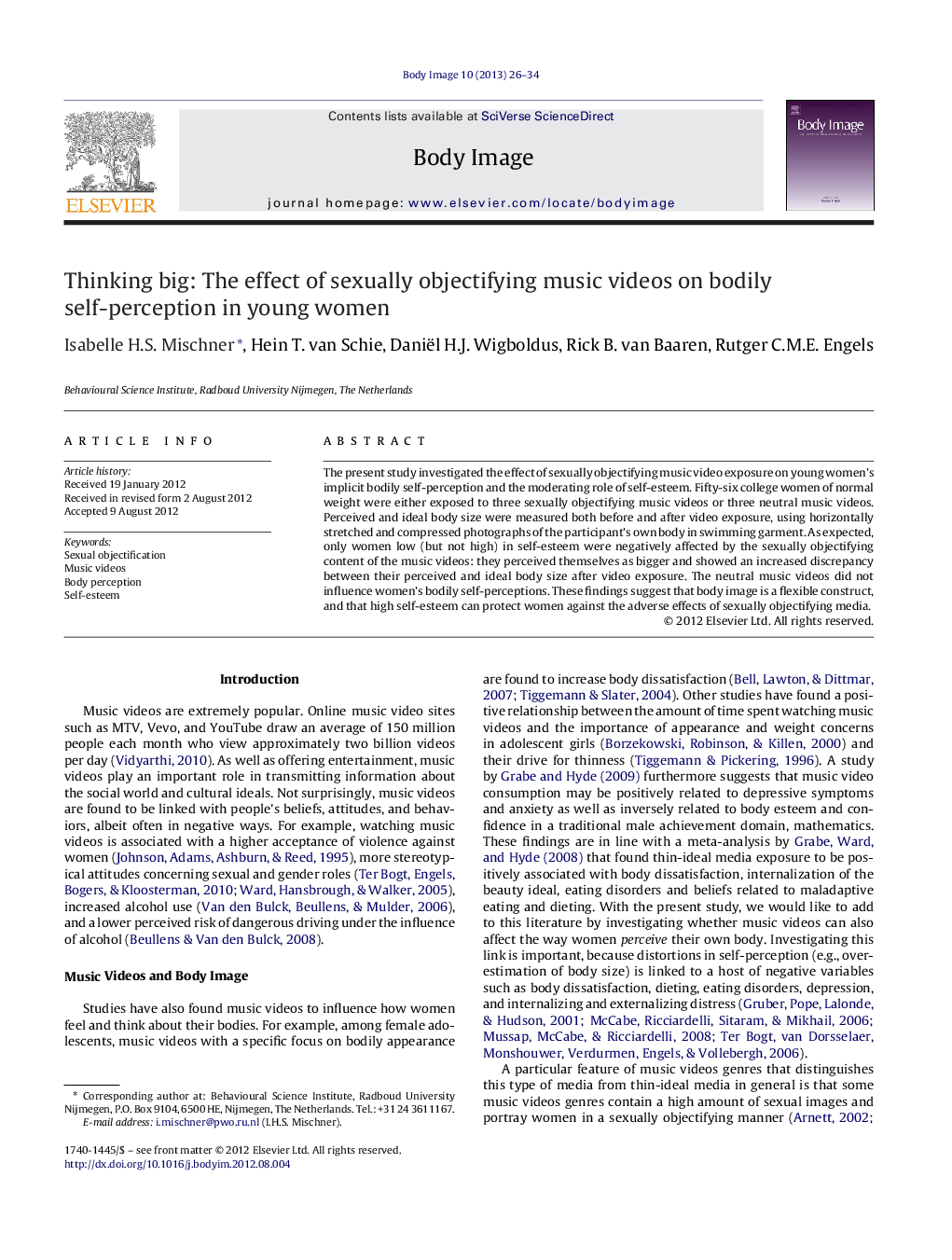| Article ID | Journal | Published Year | Pages | File Type |
|---|---|---|---|---|
| 903012 | Body Image | 2013 | 9 Pages |
The present study investigated the effect of sexually objectifying music video exposure on young women's implicit bodily self-perception and the moderating role of self-esteem. Fifty-six college women of normal weight were either exposed to three sexually objectifying music videos or three neutral music videos. Perceived and ideal body size were measured both before and after video exposure, using horizontally stretched and compressed photographs of the participant's own body in swimming garment. As expected, only women low (but not high) in self-esteem were negatively affected by the sexually objectifying content of the music videos: they perceived themselves as bigger and showed an increased discrepancy between their perceived and ideal body size after video exposure. The neutral music videos did not influence women's bodily self-perceptions. These findings suggest that body image is a flexible construct, and that high self-esteem can protect women against the adverse effects of sexually objectifying media.
► Watching objectifying music videos affected women's implicit perceived and ideal body size. ► Self-esteem (SE) moderated this effect. ► Only women low in SE were negatively affected. ► They perceived themselves as bigger and had larger perceived-ideal discrepancies. ► High SE may protect women against the adverse effects of objectifying media.
